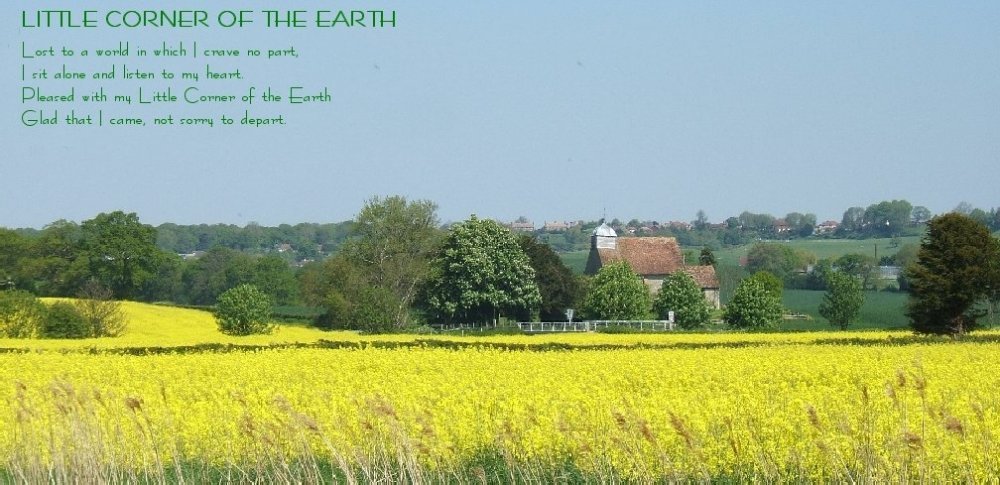Adlestrop Station before its destruction in the '60s Beeching cuts
Yes. I remember Adlestrop—
The name, because one afternoon
Of heat the express-train drew up there
Unwontedly. It was late June.
The steam hissed. Someone cleared his throat.
No one left and no one came
On the bare platform. What I saw
Was Adlestrop—only the name
And willows, willow-herb, and grass,
And meadowsweet, and haycocks dry,
No whit less still and lonely fair
Than the high cloudlets in the sky.
And for that minute a blackbird sang
Close by, and round him, mistier,
Farther and farther, all the birds
Of Oxfordshire and Gloucestershire.
Close by, and round him, mistier,
Farther and farther
This poem, by Edward Thomas, holds for me that moment during a busy, noisy journey when everything
stops for a moment and one is a traveller in an unfamiliar place. Indeed, it has an essential sense of time and place which seems almost unequalled.
Farther and farther
This poem, by Edward Thomas, holds for me that moment during a busy, noisy journey when everything
stops for a moment and one is a traveller in an unfamiliar place. Indeed, it has an essential sense of time and place which seems almost unequalled.



5 comments:
This article in The Guardian may be of interest.
http://www.theguardian.com/books/2011/jul/29/robert-frost-edward-thomas-poetry
I like his poetry and miss my little battered paperback book of some of his work (used for A level and covered in notes).
One of my favourite poems is titled 'It Rains' and his description of a wet orchard and a memory of two people in the orchard is very poignant.
Susan x
HH&B (Susan):
Thanks for that Guardian link, Duchess - very interesting. Thanks also for your email quoting:
http://www.persephonebooks.co.uk/content/persephonepost/13-march-2014/
Which I (and others) would like in connection with Edward Thomas
Pa x
If only we could entice him back to get rid of the poem's one wretched line:
Than the high cloudlets in the sky
(Where else, Thomas, where else?) then I for one would be satisfied.
I take it you're aware that the poem lives two separate lives - the rural idyll and the comic verse. Many appear to find the word Adlestrop inherently risible and, when that is assumed, the rather vulnerable misplaced adjectives in verse three become just that bit more vulnerable. The comic effect is further enhanced by having it read by someone with a speak-your-weight voice (I may be thinking of Ivor Cutler but can't be sure) opting for a clanking emphasis on the village name.
It is years since I heard it read (I don't think I've ever seen it printed out) and it's fascinating what tricks the mind plays. It was my (admittedly faint) impression that Adlestrop appears far more often, possibly as a refrain. In fact I'm beginning to wonder there isn't a parody abroad that I'm confusing the poem with. If so, forget everything I've just written.
I love this and the images it conjures, What a sad story of the poet though. War is evil.
Nice to see you again, Kay and thanks for popping by.
Post a Comment